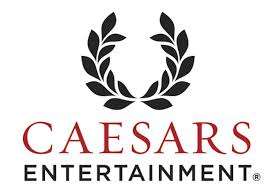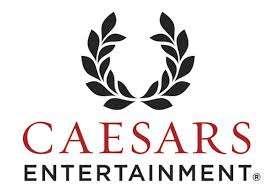Caesars’ CEOC Unit Bankruptcy Case to be Settled in Illinois
The bankruptcy case involving Caesars Entertainment’s primary operational unit Caesars Entertainment Operating Company (CEOC), is headed to an Illinois court after a Delaware judge ruled against an involuntary bankruptcy filing made against the company two weeks ago by aggrieved creditors.
 In issuing his oral decision to transfer the matter to a Chicago court, US Bankruptcy Judge Kevin Gross asserted that the preponderance of factors going into his decision “narrowly supports” moving the case to Illinois, where the CEOC unit filed its voluntary Chapter 11 bankruptcy petition on Jan. 15th. That was the first day following a 90-day window in which Caesars hammered out a controversial reorganization package which benefited its “first lien” debtholder class, with another, secondary group of debtholders involuntarily receiving much less favorable terms.
In issuing his oral decision to transfer the matter to a Chicago court, US Bankruptcy Judge Kevin Gross asserted that the preponderance of factors going into his decision “narrowly supports” moving the case to Illinois, where the CEOC unit filed its voluntary Chapter 11 bankruptcy petition on Jan. 15th. That was the first day following a 90-day window in which Caesars hammered out a controversial reorganization package which benefited its “first lien” debtholder class, with another, secondary group of debtholders involuntarily receiving much less favorable terms.
The ongoing fight over who gets the short straw has led many of the creditors in the second group to battle against Caesars’ and CEOC’s plans. That included a lawsuit filed against Caesars last year, along with the filing of the involuntary bankruptcy petition in Delaware on Jan. 12th, which the aggrieved debtholders were allowed to do after CEOC missed a debt-interest payment in December. The Jan. 12th filing by the secondary debtholder class is the action on which Judge Gross ruled today. Gross will file a full written opinion supporting his order in the coming days.
“Ultimately,” said Gross, “the overriding consideration is that the debtors chose the Illinois court.” Gross also noted that the Delaware filing by the second-lien debtholder group was “anticipatory” in nature, and that ruling in their favor would set “bad precedent” as it applies to future bankruptcy cases.
The case in Illinois will now be heard in its entirety by US Bankruptcy Judge A. Benjamin Goldgar. Prior to his ruling today, Delaware Judge Gross had already issued an order allowing certain essential business connected to CEOC’s casinos to continue. The CEOC unit is the home of some 44 Caesars-owned casino properties, scattered across 13 states and five additional countries besides the US.
Gross’s ruling came despite complaints from attorneys for the second-lien group that the CEOC unit filed for bankruptcy in Illinois precisely to shield the company’s top executives from allegations of improper activity. Illinois bankruptcy courts are generally regarded as being more lenient in allowing a bankrupt entity’s related units to separate themselves from liability associated with the bankruptcy.
Caesars’ attorneys, according to a Bloomberg update, didn’t deny that motivation. The CEOC bankruptcy is part of the end game of a massive corporate reshuffling within Caesars that has had the effect of concentrating most of the company’s bad debt within the CEOC unit, a strategy which the second-lien group continues to assert is illegal.
In making his ruling and transfer, Judge Gross also noted last week’s decision in a related New York lawsuit, in which Caesars was held to have violated a longstanding US business law, the 1939 Trust Indenture Act, in reorganizing Caesars’ various business units without the express consent of all affected debtholders.
Gross considered the implications of the New York ruling in making his decision, noting that despite his willingness to move the case to Illinois, that Caesars’ actions regarding the two-year-long reshuffling of corporate assets “on its face is suspect.” An ABC News update on today’s ruling indicates that Gross expects Goldgar, the judge in the Illinois filing who will now oversee the case, to fully incorporate the New York case and other allegations as the bankruptcy moves forward.
An additional complication arose last week, when yet another group of lenders involved with Caesars and CEOC filed a statement in the Delaware last week accusing Caesars of offering additional sweeteners, or fees, to certain lenders in exchange for support of the voluntary bankruptcy and reorganization of the CEOC unit.
In the filing submitted to Judge Gross, attorneys for debtholders including GSO Capital Partners LP, Silver Point Capital LP and BlackRock Financial Management Inc. accused Caesars execs of offering $150 million in extra payments to ensure votes of consent in connection with the planned CEOC reorganization.
The group, which collectively owns about $2.9 billion in Caesars debt, stated that “Defendants are attempting to subvert the [stated bankruptcy] plan and disclosure statement process,” in alleged violation of US bankruptcy law.
According to a Bloomberg Business report on Friday, the creditor group would have had to give up some previous loan guarantees and promise not to sue Caesars or its controlling entities, Apollo Global Management and TPG Capital, who are struggling to maintain control of the Caesars casino-entertainment empire in the face of years of mounting corporate debt.
The filing from the senior lenders in connection with the alleged deal-sweetening offer, according to the Bloomberg report, reasserts that the complex reorganization of Caesars itself — featuring the concentration of debt in the bankrupt CEOC unit — represents “fraudulent transfers and [Caesars] directors’ breaches of fiduciary duty that have been detailed in myriad recent litigations.”
All of the aggrieved lenders and investors are expected to continue their pursuit of Caesars assets as the Illinois bankruptcy case moves forward.




















COMMENTS